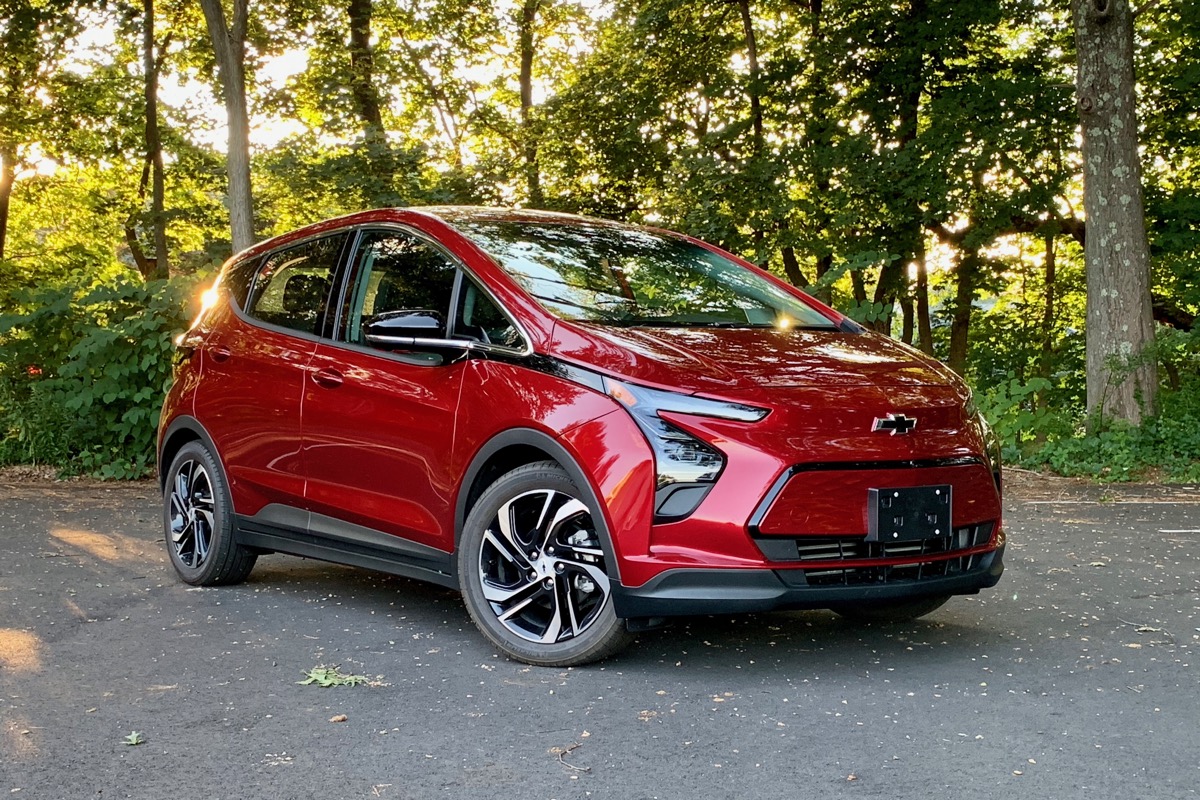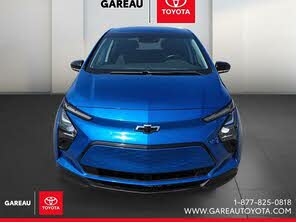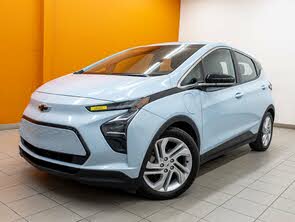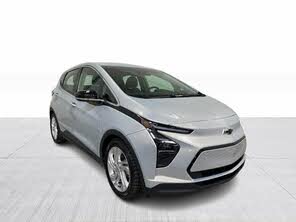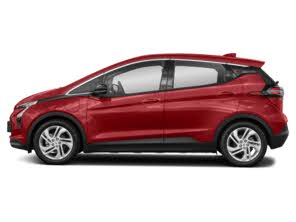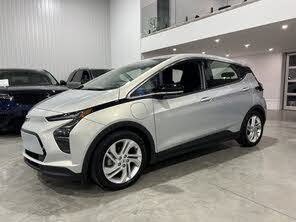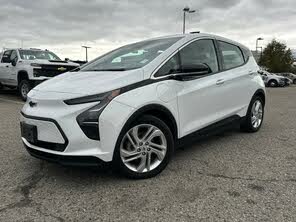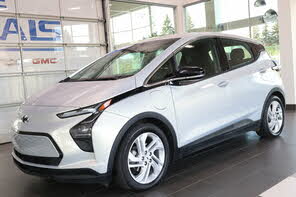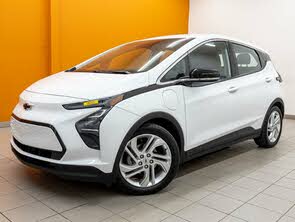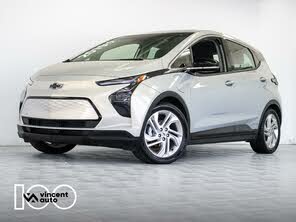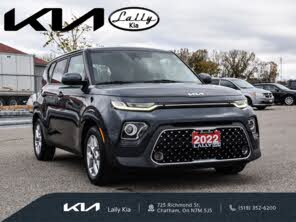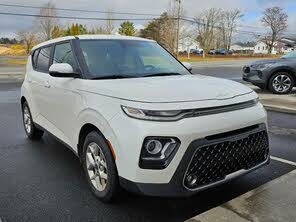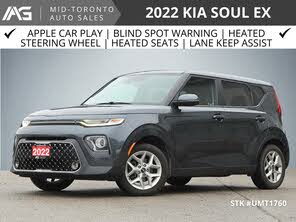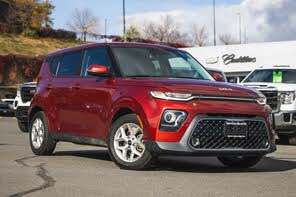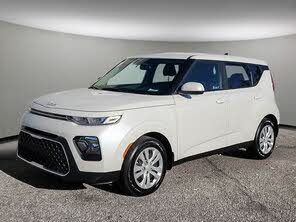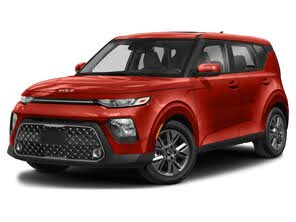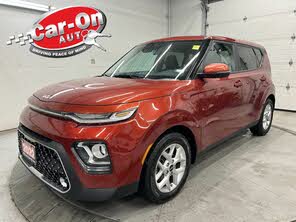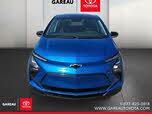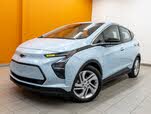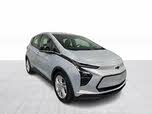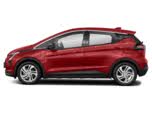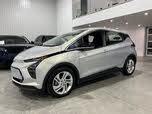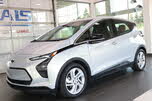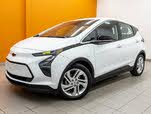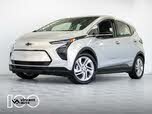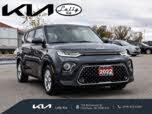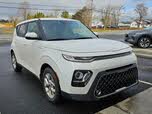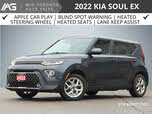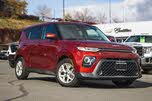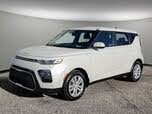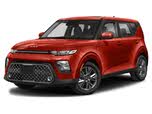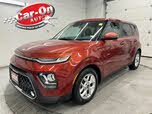2022 Chevrolet Bolt EV vs 2022 Kia Soul
Overview | |
MSRP$31,500 | MSRP$19,290 |
Average price$26,100 | Average price$22,224 |
Listings11 | Listings79 |
Ratings & Reviews | |
User Reviews | User Reviews |
Expert reviews8.0 out of 10 | Expert reviews |
2022 Chevrolet Bolt EV Reviews SummaryElectric vehicles are the future. Even racing and off-road enthusiasts have accepted this reality with the knowledge that EVs can be fun and engaging. We’ll lose the smell and the sounds, but one of the key purposes of racing is to improve the breed, so why not welcome the transition to electric propulsion? The 2022 Chevrolet Bolt EV could not be further from an enthusiast vehicle, but it’s just as important—if not more so—to the auto industry. Introduced for the 2017 model year and updated for 2022, the Bolt EV is the tip of GM’s EV spear. More EVs are coming, but it all starts here. For 2020, the Bolt EV's range from a full charge was increased to 417 kilometres. That carries over to 2022, and the Bolt EV gets standard DC fast charging as well, making it a more realistic option for more car shoppers. But is it enough to get you to make the leap to EV? | |
2022 Kia Soul Reviews Summary | |
No video found | No video found |
Popular Features & Specs | |
Engine200 hp Electric | Engine2.0L 147 hp I4 |
Drive TrainFWD | Drive TrainFWD |
Seating Capacity5 | Seating Capacity5 |
Horsepower | Horsepower147 hp @ 6200 rpm |
EV Battery Capacity66 kWh | EV Battery Capacity |
MPG City127 | MPG City28 |
MPG Highway109 | MPG Highway33 |
Battery Charge Time (240V)7 hours | Battery Charge Time (240V) |
Engine | |
Engine Name200 hp Electric | Engine Name2.0L 147 hp I4 |
Torque | Torque132 lb-ft @ 4500 rpm |
Horsepower | Horsepower147 hp @ 6200 rpm |
Battery Charge Time (240V)7 hours | Battery Charge Time (240V) |
DrivetrainFWD | DrivetrainFWD |
Fuel Economy | |
EV Battery Capacity66 kWh | EV Battery Capacity |
MPG City127 | MPG City28 |
MPG Highway109 | MPG Highway33 |
Interior | |
Seating Capacity5 | Seating Capacity5 |
Safety | |
Front Crash Overall5 | Front Crash Overall4 |
Side Crash Overall5 | Side Crash Overall5 |
Dimensions & Capacity | |
Cargo Space16.6 cu ft | Cargo Space24.2 cu ft |
Curb Weight3589 lbs | Curb Weight2844 lbs |
Height63.4 in | Height63.0 in |
Length163.2 in | Length165.2 in |
Width80.3 in | Width70.9 in |
Wheelbase102.4 in | Wheelbase102.4 in |
Maximum Payload | Maximum Payload1179 lbs |
Number of doors4 | Number of doors4 |
Overview | ||
MSRP | $31,500 | $19,290 |
Average price | $26,100 | $22,224 |
Listings | ||
Ratings & Reviews | ||
User reviews | ||
Expert reviews | 8.0 out of 10Read full review | |
Pros & cons | ||
Summary | Electric vehicles are the future. Even racing and off-road enthusiasts have accepted this reality with the knowledge that EVs can be fun and engaging. We’ll lose the smell and the sounds, but one of the key purposes of racing is to improve the breed, so why not welcome the transition to electric propulsion? The 2022 Chevrolet Bolt EV could not be further from an enthusiast vehicle, but it’s just as important—if not more so—to the auto industry. Introduced for the 2017 model year and updated for 2022, the Bolt EV is the tip of GM’s EV spear. More EVs are coming, but it all starts here. For 2020, the Bolt EV's range from a full charge was increased to 417 kilometres. That carries over to 2022, and the Bolt EV gets standard DC fast charging as well, making it a more realistic option for more car shoppers. But is it enough to get you to make the leap to EV? | |
Video | No video found | No video found |
Popular Features & Specs | ||
Engine | 200 hp Electric | 2.0L 147 hp I4 |
Drive Train | FWD | FWD |
Seating Capacity | 5 | 5 |
Horsepower | 147 hp @ 6200 rpm | |
EV Battery Capacity | 66 kWh | |
MPG City | 127 | 28 |
MPG Highway | 109 | 33 |
Battery Charge Time (240V) | 7 hours | |
Engine | ||
Engine Name | 200 hp Electric | 2.0L 147 hp I4 |
Torque | 132 lb-ft @ 4500 rpm | |
Horsepower | 147 hp @ 6200 rpm | |
Battery Charge Time (240V) | 7 hours | |
Drivetrain | FWD | FWD |
Fuel Economy | ||
EV Battery Capacity | 66 kWh | |
MPG City | 127 | 28 |
MPG Highway | 109 | 33 |
Interior | ||
Seating Capacity | 5 | 5 |
Safety | ||
Front Crash Overall | 5 | 4 |
Side Crash Overall | 5 | 5 |
Dimensions & Capacity | ||
Cargo Space | 16.6 cu ft | 24.2 cu ft |
Curb Weight | 3589 lbs | 2844 lbs |
Height | 63.4 in | 63.0 in |
Length | 163.2 in | 165.2 in |
Width | 80.3 in | 70.9 in |
Wheelbase | 102.4 in | 102.4 in |
Maximum Payload | 1179 lbs | |
Number of doors | 4 | 4 |

By: CarGurus + AI
At CarGurus, our team of experienced automotive writers remain at the heart of our content operation, conducting hands-on car tests and writing insightful guides that are backed by years of industry experience. To complement this, we are harnessing AI to make our content offering more diverse and more helpful to shoppers than ever. To achieve this, our AI systems are based exclusively on CarGurus content, ratings and data, so that what we produce is both unique to CarGurus, and uniquely helpful to car shoppers.
